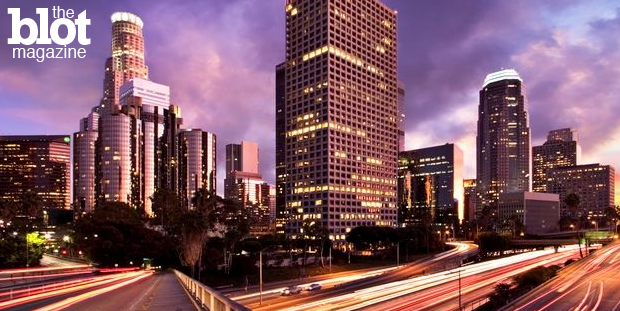
The Los Angeles City Council has told Angelenos who are locked in a love affair with their cars to take a hike.
The sprawling city has long been synonymous with highways and automobiles, but a plan approved last month that will install hundreds of miles of bus-only lanes, protected bicycle lanes and traffic-calming measures could be a turning point in its residents’ addiction to driving.
The initiative, Mobility Plan 2035, aims to get city residents out of their cars or at least force them to rely less on driving everywhere. Despite objections from opponents that the measures will increase congestion, further snarl traffic-clogged streets and highways and lead to critical lost seconds during emergencies for first responders, the plan was approved under the concept of complete streets. The concept seeks a comfortable middle-ground at street-level for buses, bicyclists, drivers and pedestrians all to co-exist together peaceably.
The decision by lawmakers to cut the umbilical cord between Angelenos and their autos was informed by data that shows city residents are actually driving less by choice. Nationally, trends among Millennials point to the generation bypassing what were the traditional trappings of success. Instead of opting for the allure of a suburban home with the two-car garage, most young people now prefer to live in an urban, walkable place that is also convenient to public transit.
Read more: Transportation Bill Debate Heats Up, But Will Congress Derail It?
Incredibly, as most outside of Southern California assume that all anyone in the region wants is a single-family home with a yard, many are actually beginning to buy condos instead — both for the lower costs of ownership and benefits of living in areas of greater population density.
And as Los Angeles has begun to invest in its public-transit infrastructure over the past 20 years, Angelenos have become less reliant on their cars. A Los Angeles City Planning report released by former Deputy Mayor Rick Cole found a consistent decline among Angelenos in their Daily Vehicle Miles Traveled (VMT) per capita since 2002. The report noted VMT dropped from 11.91 in 2002 to 10.76 in 2013. In the latter year, residents drove more than an hour less than in 2003.
Cole tweeted this graphic in June:
Clearest sign yet of a Third Los Angeles @HawthorneLAT @seletajewel @StreetsblogLA @CarterRubin @LAGreatStreets pic.twitter.com/pOFPg7iCWN
— Rick Cole (@SaMoCole) June 17, 2015
Other data from the Frontier Group and the U.S. Public Interest Research Group Education Fund reported that residents of the entire region drove 2.3 percent fewer miles in 2010 than in 2006 — for a total reduction of 2.9 billion miles. It also found that the number of people commuting by car has dropped nearly 2 percent. Nationally, Americans are driving 7.6 percent less miles than they did in 2004.
Read more: Which City’s Mass Transit Gives Best Bang for Rate Hikes?
In Los Angeles during the same time, public-transit mileage has gone up by about 14 percent with total trips up about 1.1 percent. The city Metro has also expanded the Expo Line light rail and completed an extension of the Orange Line commuter busway.
Ironically, the city of the freeway- and car-dominant culture could be leading the way to a future with less cars. While cities across the country grapple with building for their next generations, the City of Angels could be leading the way to realizing traffic and its concomitant loss of economic productivity is not a problem that can be solved by building more roads.
Though at first there may be some growing pains in congestion and increased traffic, this is a good thing both for commercial growth and lessening the environmental impacts of driving.
Americans love their cars, and in some parts of the country, they are absolutely necessary to live. But stopping the addiction to driving absolutely everywhere and cutting the never-ending circle of building more roads to lessen traffic has to be detoured eventually.
It seems Los Angeles lawmakers are finally taking that strategy seriously.
Noah Zuss is a reporter for TheBlot Magazine.





